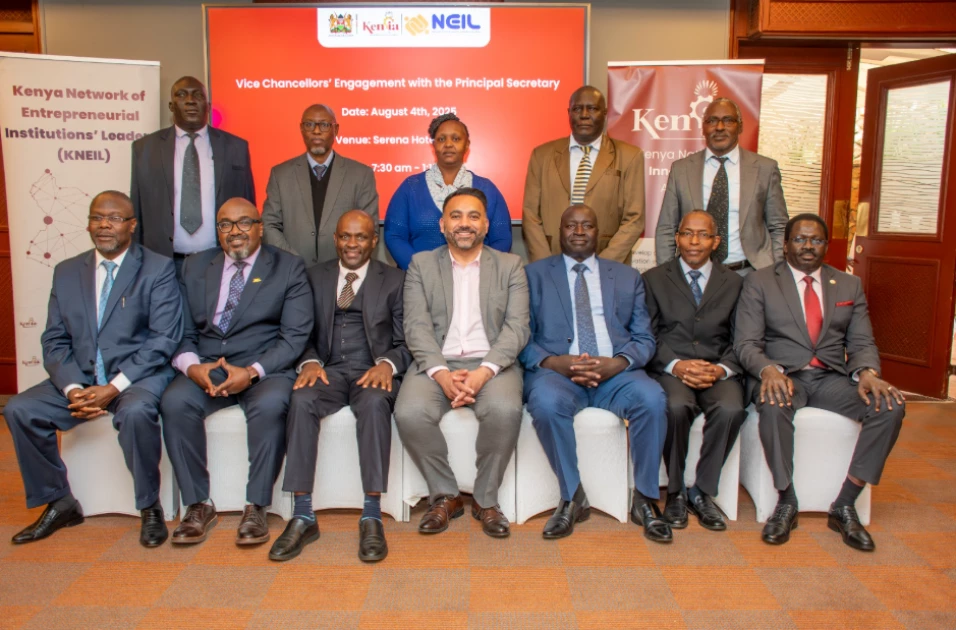PS Shaukat pushes universities to turn research into real-world solutions

Principal Secretary for Science, Research and Innovation Prof. Abdulrazak Shaukat (Centre) with Vice Chancellors and their deputies.

Audio By Carbonatix
The government has called on universities to
stop treating research as a purely academic exercise and instead start turning
their innovations into products and services that create jobs and solve
national problems.
Speaking during the Entrepreneurial Leaders’
Training Program (ELTP) hosted by the Kenya National Innovation Agency (KeNIA),
Principal Secretary for Science, Research and Innovation Prof. Abdulrazak
Shaukat said universities must become drivers of demand-led research and
commercialization.
He challenged Vice Chancellors and their deputies
to transform institutions into hubs of practical innovation, not just centers
of theory.
“Universities are no longer ivory towers—they
must be centres of real-world problem-solving,” Prof. Shaukat said.
He added that the government is working to
increase funding for research and development from the current 0.8% to 1% of
GDP, while establishing national think tanks and strengthening science
diplomacy to ensure no institution or innovator is left behind.
The training brought together over 25 Vice
Chancellors and Deputy Vice Chancellors from across the country.
It forms part of Kenya’s
Research-to-Commercialization (R2C) agenda aimed at helping universities
develop technology transfer offices, strengthen industry partnerships and
generate revenue from innovation.
KeNIA CEO Dr. Tonny Omwansa said the program
is already bearing fruit, with universities filing patents, developing
innovation master plans, and attracting funding for student-led inventions.
He noted that although Kenya ranks in
Africa’s top three in research output, less than 10 percent of university
research is currently commercialized — a gap the government now hopes to close
through targeted reforms and capacity building.
Throughout the training, university leaders
showcased successful innovations, including a $890,000 international funding
award won by Crackfox through the University of Embu, multiple patents filed by
KCA University, and Maasai Mara University’s new Technology Transfer Office
focused on bioenergy and agriculture.
Prof. Penina Lawbudo, Vice Chancellor of
Maasai Mara University, said innovation is now fully embedded in the
university's culture, curriculum and governance structures.
The government plans to support institutions
further through exchange programs in Denmark, India and South Africa, and
through the upcoming CEIL Summit in September, which will highlight
university-led innovation strategies.
Prof. Shaukat emphasized that Kenya’s future
competitiveness depends on transforming research into commercial value, saying
universities must take the lead for the country to unlock new economic
opportunities.


Leave a Comment